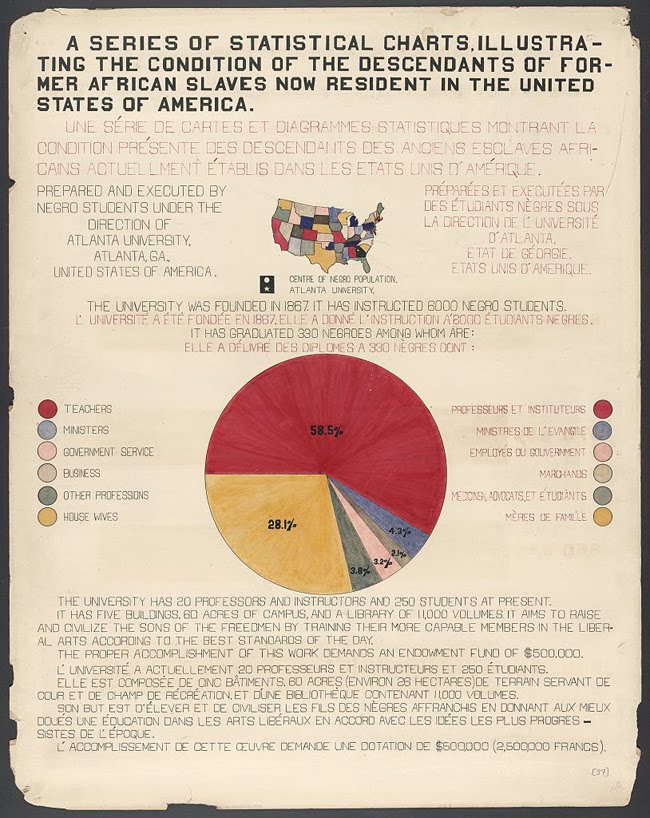The 2016 MacArthur Fellows were announced yesterday and — unlike some years — there were no anthropologists on the list. Established back in 1981, the grant was intended not to find “geniuses” (despite the fact that its nicknamed the genius grant) but rather “talented individuals who have shown extraordinary orginality and dedication in their creative pursuits and a marked capacity for self-direction. This year no anthropologists made the cut, but this isn’t how it always goes.
WVTF
Christine Moellenberndt, anthropologist and community manager at Reddit, joined Marketplace Weekend to discuss online communities and how she studies their intricacies. To listen to the full interview, tune in using the audio player above.

Few people have done more to accurately foresee and help shape the century ahead of them as W.E.B. Du Bois. And perhaps few intellectuals from the early twentieth century still have as much critical relevance to our contemporary global crises. Du Bois’ incisive sociology of racism in The Souls of Black Folk,Black Reconstruction in America, and his articles for the NAACP’s journal, The Crisis, remained rooted in a transcontinental awareness that anticipated globalism as it critiqued tribalism. Du Bois, who studied in Berlin and traveled widely in Europe, Africa, and Latin America, also became one of the most influential of Pan-Africanist thinkers, uniting the anti-colonial concerns of African and Caribbean nations with the post-Reconstruction issues of Black Americans.
Anthropologist brings European refugee crisis to the classroom
UCLA Newsroom
Students in two global studies classes at UCLA this quarter will benefit from an eye-opening month their professor spent in Greece this past summer. In July, anthropologist Laurie Hart taught international graduate seminars on the current border crisis ..
I began research on food access in Washington, D.C., knowing that I wanted to learn about a) what people were eating b) where they were shopping, and c) how (if at all) they engaged urban agriculture movements.
Recently received conference announcement and call for sessions that should be of great interest to FoodAnthropology readers!
Call for sessions
Third International Conference on Food History and Cultures
1-2 June 2017 – Tours (France)
There are multiple answers to the question of where we come from: early hominins, monkeys, primordial goo, or the Big Bang, to name a few. Today’s answer, though, has probably, just a split second ago, popped into many readers’ minds. Today’s answer is sexual intercourse, a.k.a. “bleeping.” So let’s go back to the beginning, hundreds of millions of years before we invented euphemisms and censorship, and let’s ask: How in the evolutionary world did sex begin?

An extensive DNA study confirms what Aboriginal and Torres Strait Islander people have always believed: they’re the oldest living civilisation on the planet.
![]()
Transgenderism and the New Anthropology
American Thinker
Chances are, if you were a kid educated in public schools, you were taught about the evolution of man from a common ancestor, a prototypical primate from whom all the human races are derived. Maybe you were provided a handy visual graph (like the one
What happens to our praxis once we start from a place of acknowledging difference in our persons, our histories, our bodies, and our aesthetics? This text starts from a standpoint of curiosity, consideration, and mindfulness as we explore how, who and what we are, inform structures we create. The moment and place of knowing requires a certain slowness to enter into our thoughts, movements, and research, allowing for nuance and precision, for care and humility, and for an aesthetic of difference to incubate our praxis. Once we allow our work to breathe, to reflect, to sense difference, it transforms structures around it or structures created through it.[1] The act of research becomes praxis through which critical awareness of one’s own condition and the condition of others comes into high relief.
Barack Obama: anthropologist-in-chief
Financial Times
She was an anthropologist — a scholar who studies foreign cultures. Being an anthropologist’s son myself (though, unlike Obama, I actually was born in east Africa), I’ve always sensed that the family business explains a lot about his presidency.
French and anthropology class on diplomacy to travel to Europe Macalester College The Mac Weekly Professors Juliette Rogers of the French department and Dianna Shandy of the anthropology department will be co-teaching the course, which is cross-listed in both departments and also counts towards the Human Rights and Humanitarianism concentration. |
Discover more from Erkan's Field Diary
Subscribe to get the latest posts sent to your email.